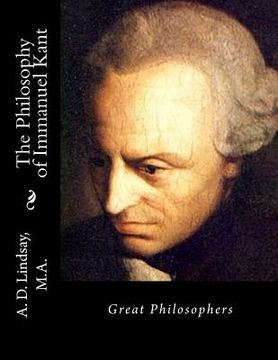Reseña del libro "The Philosophy of Immanuel Kant: Great Philosophers (en Inglés)"
Immanuel Kant; (22 April 1724 - 12 February 1804) was a German philosopher who is considered the central figure of modern philosophy. Kant argued that fundamental concepts of the human mind structure human experience, that reason is the source of morality, that aesthetics arises from a faculty of disinterested judgment, that space and time are forms of our sensibility, and that the world as it is "in-itself" is unknowable. Kant took himself to have effected a Copernican revolution in philosophy, akin to Copernicus' reversal of the age-old belief that the sun revolved around the earth. His beliefs continue to have a major influence on contemporary philosophy, especially the fields of metaphysics, epistemology, ethics, political theory, and aesthetics. Kant in his critical phase sought to 'reverse' the orientation of pre-critical philosophy by showing how the traditional problems of metaphysics can be overcome by supposing that the agreement between reality and the concepts we use to conceive it arises not because our mental concepts have come to passively mirror reality, but because reality must conform to the human mind's active concepts to be conceivable and at all possible for us to experience. Kant thus regarded the basic categories of the human mind as the transcendental "condition of possibility" for any experience. Politically, Kant was one of the earliest exponents of the idea that perpetual peace could be secured through universal democracy and international cooperation. He believed that this eventually will be the outcome of universal history, although it is not rationally planned. The exact nature of Kant's religious ideas continue to be the subject of especially heated philosophical dispute, with viewpoints ranging from the idea that Kant was an early and radical exponent of atheism who finally exploded the ontological argument for God's existence, to more critical treatments epitomized by Nietzsche who claimed that Kant had "theologian blood" and that Kant was merely a sophisticated apologist for traditional Christian religious belief, writing that "Kant wanted to prove, in a way that would dumbfound the common man, that the common man was right: that was the secret joke of this soul."

